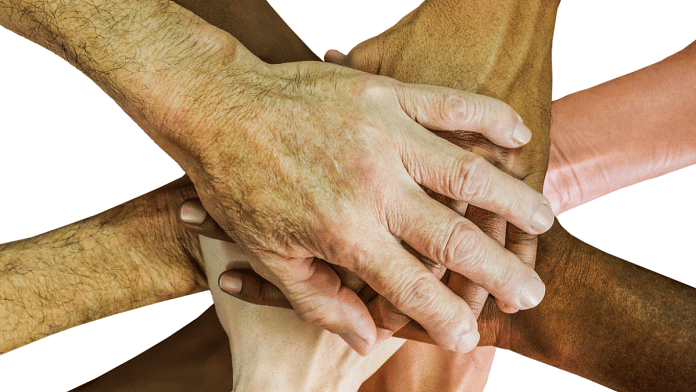Thank you dear subscribers, we are overwhelmed with your response.
Your Turn is a unique section from ThePrint featuring points of view from its subscribers. If you are a subscriber, have a point of view, please send it to us. If not, do subscribe here: https://theprint.in/subscribe/
The part of the world that we refer to as Indian subcontinent today, has history spanning over 5000 years. Once a flourishing knowledge, educational, cultural, manufacturing and trading hub, the subcontinent naturally rose to be one of the global superpowers of the ancient world.
What made ancient Indian subcontinent one of the superpowers? To my understanding – Power and prosperity stemmed from free trade, cultural exchange, skilled workforce, and renowned educational institutions and universities. Despite never being a united country like we are today, our predecessors seemed to have accepted the diversity that existed around them and integrated it into the society. They learned from others as others learned from them. Empires rose and fell; invaders came and integrated, sometimes dominated and finally colonised. But we rose against them and inherited an “united” nation, which was hugely diverse provinces and princely states before. That has been our heritage.
Heritage is something that the future generation inherits, hence is not static. So, what is the heritage we are leaving for the future generation?
In today’s India, we look more interested in wanting to RIGHT the WRONGS done in the PAST. Our sense of being “wronged” in the past is causing our sentiments to hurt so easily that we are rejecting ideas and thoughts that are different from ours. There is a growing tendency of intolerance, of playing a victim, getting caught in social media echo chambers, shirking our responsibilities, and drawing comfort from blaming others. We are placing more importance on the name (read it as religion, cast and state of origin), what one wears, who one prays to, what does one eat…. all of which are very personal. We want to hold people accountable for eating/selling beef, not standing up for national anthem at the movie theatre, for cracking a joke that is political in nature and so on. That seems to have become our sense of nationalism. We have started considering critical feedback and nonaligned thought process, as unpatriotic. Is this the kind of patriotism and nationalism the country needs?
Our leaders want a multipolar and inclusive world, meanwhile, the fabric of India’s society is moving towards polarity and intolerance. Does this make any sense? Are we short-changing our potentials as people and a nation?
Are we trying to hold on to a very distant past that HAS BEEN great, while the distorted national pride may be arrogance born out of insecurity and feeling of lack? Lack of basic things like unpolluted air and water, balanced diet, good education, and better employability.
Perhaps, we need a change in attitude, from being a “proud Indian” to “comfortable being an India” where we do not look upon others to acknowledge India’s greatness. We need to understand that everything foreign is not good but everything foreign is not bad either. Our openness to critical feedback and commitment to critical thinking will help us grow as a nation.
It is great that we want to get out of our colonisation hangover, as we must, but does having more people speaking Hindi and calling ourselves Bharat really help? If changing names could change fortunes, wouldn’t we all like to call ourselves Mahindra Singh Dhoni, Shahrukh Khan, Ratan Tata !! Our great ancestry and the traumatic history of colonisation are the past, the present is a hugely different world order.
India aspires to be Vishwa Guru but DO OUR daily actions qualify us as role models for our own children? My guess is, NO. To be Vishwa Guru, we don’t have to go out and preach to the world about our greatness. To be a role model today, we must be pragmatic, believe in ourselves, own our strengths, acknowledge and work on weaknesses and adapt to the fast changing and technologically connected world. As citizens, we should be holding our leaders accountable for their responsibilities and holding ourselves accountable for ours. Keeping surroundings clean, following basic rules even if not under surveillance, reading and respecting opposing views, taking a stance against corruption, respecting dignity of labour, better education, upskilling, are some of the many things that WE as citizens are responsible for.
As far as adapting to diversity is concerned, we already have a huge head start just by being born Indian. Many in India believe that India needs unity, trying to bring uniformity will kill the essence of the country. I resonate with that thought.
A country is made of the citizens. So, in the rampant fight for our individual identity, is India losing Her’s?
These pieces are being published as they have been received – they have not been edited/fact-checked by ThePrint.


